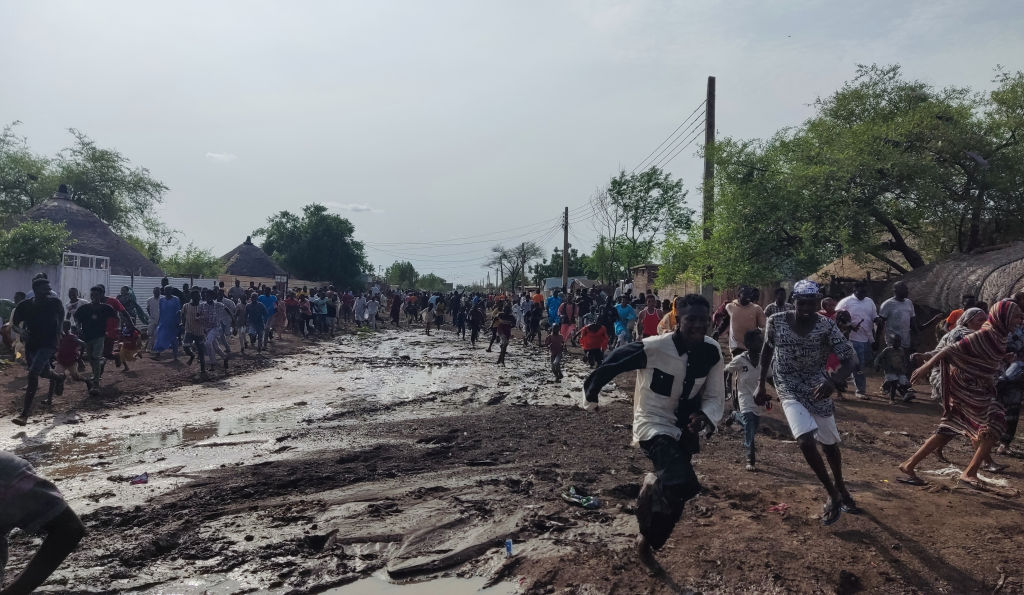Iran and Russia are seeking to capitalize on the chaos in Sudan as they look for new locations to establish military bases.
Both countries were longtime supporters of the Syrian regime led by Bashar al-Assad that rebels toppled in December. Iran and Russia each had military bases in Syria that they used to project regional influence. The countries began negotiating with Sudan last year, as rebels began turning the tide of the Syrian war.
Iran and Russia both back the Sudanese Armed Forces (SAF), which has fought for control of the country against the paramilitary Rapid Support Forces (RSF) since April 2023. Ceasefire talks have failed amid a spiraling humanitarian crisis.
However, extensive foreign interference is prolonging the war, according to Emadeddin Badi, a nonresident senior fellow with the Middle East Programs at the Atlantic Council.
“While foreign actors help drive Sudan’s suffering, an international effort to bring an end to the war — and bring needed aid to the people of Sudan — has been lacking,” Badi wrote. “Unraveling the web of outside interests is essential to cultivating an adequate international response to this crisis.”
Russia, which has extensive gold mining and smuggling interests in Sudan, has for years lobbied for a military base in Port Sudan, which is controlled by the SAF. Under Assad, Russia operated Syria’s Khmeimim air base, which was crucial to facilitating the transfer of forces and heavy weapons to Africa. Now, Moscow must restructure its support routes.
Sudan has entertained the idea and denied reports that it rejected Moscow’s proposal. In exchange for a military base, Russia reportedly offered Sudan advanced military hardware, including the S-400 missile defense system.
“It is not a shame to give a military base to any country on the Red Sea with which we have economic partnerships,” Yasir El Atta, deputy commander-in-chief of the SAF, told Saudi Arabia’s Al Hadath News last year.
Iran has sought to establish a helicopter carrier on Sudan’s coast. Sudan has not yet agreed to this, but analysts with the Robert Lansing Institute for Global Threats and Democracies Studies believe the SAF may soften that position as the brutal war continues.
Iran and Sudan have a long history of bilateral relations, not always positive. In 2016, Khartoum cut formal ties with Tehran. The countries have since engaged in multilateral meetings on issues such as agriculture cooperation, but relations never fully recovered.
However, observers warn that embracing Iran could leave Sudan further isolated once the war is over. “Once the current conflict ends, Sudan will need help, not hindrance, in its reconstruction, and will need to look further than Iran for assistance,” Andrew McGregor wrote for the journal Terrorism Monitor. “All these factors speak against the establishment of an Iranian naval facility in Sudan or a formal alliance.”
Russia and Iran are also supplying the SAF with weapons and military equipment. Iranian Mohajer-6 drones have been used extensively by the SAF to retake parts of Omdurman, often causing civilian casualties.
This “assistance to the SAF also fits a dynamic that predates the war and again relates to Iran’s battle for influence with Saudi Arabia,” Eric Lob of Florida International University wrote in The Conversation.
Arming the SAF also benefits Iran’s wider geopolitical goals amid further competition with Israel and the United Arab Emirates.
“At the same time, it can prove a lucrative source of income for the Iranian economy, as well as a showcase for the country’s technology,” wrote Lob.
According to Amnesty International, Russia has exported variants of small arms such as Tigr designated marksman rifles, or Saiga-MK rifles, that are normally marketed to civilian gunowners, to arms dealers with strong links to the SAF. Russia has also sold the army millions of barrels of fuel.

